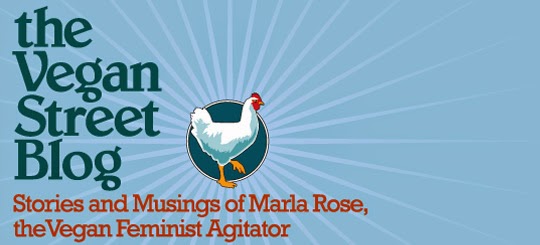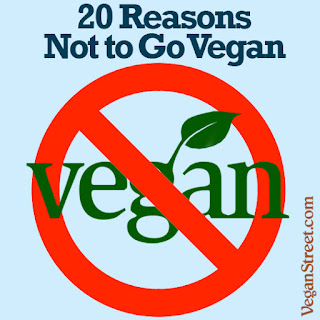-->
How many ways do I love JL
Fields? Let me count the ways…
1. I love her passionate vegan foodie ways.
1. I love that she is a passionate vegan foodie who manages to create recipes
that are accessible to the average home cook who doesn’t want to spend hours in
the kitchen with each meal but still have delicious food regardless.
3. I love that she’s funny, snarky, engaged, fierce and talented. (Follow her personal page on Facebook to see ample evidence of
this and professional page for lots of foodie inspiration.)
4. I love how prolific she is! Look at all these fabulous books she’s written and co-authored.
5. She also has a radio show, when she’s not coaching people and creating meal plans. Are you even kidding me?! I was lucky enough to be a guest. I could have talked to JL for seven hours straight.
6. I think I need to take a nap now.
7. I feel like a failure.
8. But I can’t hate JL because she’s far too awesome.
9. And I get to see her at Chicago VeganMania on September 23 (as do you!) with the release of her most recent cookbook, The Vegan Air Fryer. Join us!
1. First of all, we’d love to hear your “vegan evolution” story. How did you
start out? Did you have any early influences or experiences as a young person
that in retrospect helped to pave your path?
I’d love to tell you that I
had an inkling at a young age that vegan was the way to go but I just didn’t.
Yes, I loved my cats and dog and yes, I loved eating meat. When I was in my
late thirties I was in Kenya for a work event and a male elder led a got into
the ceremony. The goat was slaughtered, stewed, and served for dinner. I became
a vegetarian on the spot. It was eight years later, when, far less
dramatically, I had concluded a 16-day detox with my yoga instructor and
realized I hadn’t had animal products during that time. Huh, I guess I’m vegan,
I thought. And so I was.
2. Imagine that you are pre-vegan again: how could someone have talked to you
and what could they have said or shown you that could have been the most
effective way to have a positive influence on you moving toward veganism?
Hmm, that’s a good
question. I consider myself a seeking spirit – something I attribute to my
Buddhism – and I tend to be more convinced when I have an experience and allow myself
to be moved by it. But I can tell you that if the year I was 40 someone said go
vegan to lose weight or go healthy I would have said, “not necessary!” I was a
size 4 and running marathons and my blood work was top notch.
If someone at 40 had said, “It’s
great that you’re vegetarian, but do you know how hens and cows are treated for
your eggs and dairy?” I just didn’t know. It’s actually one of the reasons that
when meat eaters ask me how to start, and they know they aren’t ready to go all
in, that I encourage them to give up eggs and dairy before meat. It gives me
the opportunity to talk about the cruelty in terms of logic. An animal farmed
for meat will die a violent death in a matter of months. Dairy cows and
chickens experience utter hell for months and years on end. I think once you lay
out the simple truth of a farmed animals life, it’s hard not to want to end all
of the cruelty.
3.
What have you found to be the most effective way to communicate your message as
a vegan? For example, humor, passion, images, etc.?
I’m an enthusiastic foodie.
I get so excited by vegan food, how to make it quickly and deliciously, and I
think my utter delight in creating vegan food rubs off on people. I’m on a book
tour right now and no matter
how daunting a day of travel can be, the minute I’m in front of people
demonstrating fun vegan recipes, well, I’m perked up and ready to roll. Anyway
who’s taken one of classes knows that humor is an integral part of what I do.
We need to have fun. This is very serious stuff we’re talking about – saving
animals and the planet – but that doesn’t mean we can’t laugh and smile while
we’re doing it.
4.
What do you think are the biggest strengths of the vegan movement?
We have some compassionate
leaders who are emerging and changing the face of the movement. Though there’s
still a lot of bowing down to the feet of the white male plant-based doctors,
there are exciting entrepreneurs and solopreneurs that are making delicious food,
creating gorgeous clothing, pushing forth a social justice message and taking up
space in the environmental movement. Their leadership is inviting in a broader audience.
5. What do you think are our biggest
hindrances to getting the word out effectively?
I think every single activist should know their audience and be
willing to meet them where they are. Being kind and inviting others in, at
their pace, just might have a more profound impact that treating people like
nails and your message is the hammer. You know, I’ve been vegetarian for nearly
15 years and vegan close to eight years. My husband didn’t follow the same
path. And I never tried to hammer veganism into him. I did invite him to vegan
events, draw the line on what I could tolerate (I never purchased animal
products or prepared them once I went vegan), model a happy and healthy vegan
lifestyle, and he ultimately did make a decision to live a vegan life. On his
terms.
6. All of us need a “why vegan” elevator
pitch. We’d love to hear yours.
I was on a morning news
show in Denver show last month and the anchor asked me why I didn’t want to eat
animals or animal products,
“I don’t need to eat them,
so why harm them?”
Obviously I’m only going up
one floor on the elevator (oops, should have walked).
7. Who are the people and what are the books,
films, websites and organizations that have had the greatest influence on your
veganism and your continuing evolution?
I have many mentors and
there are leaders I admire from afar but I have to say that Ginny
Messina, Christopher-Sebastian McJetters, and Andy
Tabar are three people who
really inspire me. They are consistent in their vegan message. They speak truth
to power. They are vegan for the animals.
When I want to passively
share vegan information on my personal social media, knowing many of my
non-vegan friends and family will see it, I lean toward Vegan
Outreach and Mercy
for Animals. And of course I share
Vegan Street memes! [Ed. note: Interrupting this interview to pass the hat and remind you,
gentle reader, that you can support the memes and other work we create by signing on as Patreons of Vegan Street.]
8. Burn-out is so common among vegans: what do you do to unwind, recharge and
inspire yourself?
Before transitioning my career to that of culinary
instructor and food writer, I worked in
the nonprofit sector. My clients were victims of hate crimes, sexual assault
survivors, and women around the globe who experienced all types of violence. I
learned early in my career that carving out time for quiet reflection or
reckless and loud fun was essential to cope and come back refreshed. I still
carve out meditative and raucous time.
9. What is the issue
nearest and dearest to your heart that you would like others to know more
about?
I want every single chubby/curvy/fat vegan to know I see you and I
love you and you are as important, if not more important, in this movement.
Please do not let the loud, highly visible people who judge and shame food
choices and body size silence you.
10. Please finish this
sentence: “To me, being vegan is...”
…meeting
my highest self.




